Strengthening Japan –Vietnam human exchanges through technical intern training program
(VNF) - The workshop on “Strengthening of Japan – Vietnam human exchanges with returnees of technical intern training program” has been organized on May 26th in Hanoi.
The event held by the Embassy of Japan in Vietnam, Japan International Cooperation Agency (JICA), in cooperation with Vietnam Institute for Economics and Policy Research (VEPR) with the participation of Umeda Kunio, the Japan Ambassador to Vietnam; Mr. Nguyen Luong Trao, Chairman of Vietnam Association of Manpower Supply (VAMAS) and more than 120 delegates from Vietnamese and Japanese Government agencies, companies, research intitutions, vocational training institutions and technical intern trainees.
The workshop aims to presentings the key outcomes of the Survey on Technical Intern Training Program funded by JICA from December 2016 to June 2017. Key findings and recommendations for effectively solving the skill mismatch between the source from the Program and needs of industrial sector for better provision of human resource for the development of Vietnam’s industrial sector.
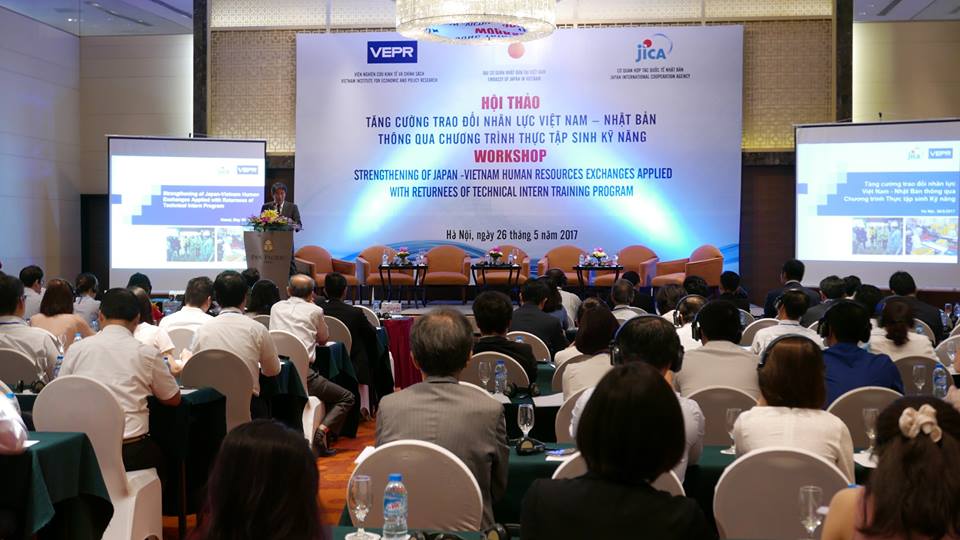 |
Ambassador Umeda Kunio delivers his speech at the opening ceremony.
“The number of Vietnamese technical trainees to Japan has increased dramatically in recent years. In parallel, the flow of Japanese to FDI to Vietnam, especially FDI from SMEs has also sharly risen,” Ambassador Umeda Kunio said at the opening ceremony.
He believed that linking them would play a significant role in the industrial human resource development n Vietnam, contributing to strengthening bilateral relations between two countries.
Vietnam and Japan has been implementing the Technical Intern Training Programme (TITP) for Vietnamese apprentices in Japan since 2005. TITP has brought a great opportunity for the Vietnamese young workers to raise their income and especially, to learn skills for a long-life career.
Accordingly, the number of return trainees has been increasing steadily. In 2016, number of Vietnamese technical intern trainees in Japan is about nearly 110,000 people. However, the demand of local enterprisese for human resource and the qualification as well as expectation of the return trainees have not met, which create the skill mismatch in labour market.
According to the Survey, the key existing issue of TITP is the lack of transparency and information sharing. This leads to the increase of recruitment cost, further pressure for trainees for earning which might affects their motivation on learning and skill grasp.
Besides, the fierce competition among sending companies leads to the ignorance in providing better pre-departune training and orientation for trainees, which creates various difficulties for trainees in adapting to the new working environment in Japan as well as keeping their motivations for skill learning.
| |
Many trainees come back home only to find themselves jobless or work in a profession not suited to the skills they have acquired in Japan. The current situation is a regrettable waste of labour resources and valuable skills obtained from not only Japan but also developed countries.
Also, the difficulty in identifying untrustworthy sending companies have ruined the image of TITP and brought difficulties for staleholders. Although VAMAS has lauched the ranking system for sending companies including Code of Conduct in 2010 and Supervisory Mechanism in 2012, the number of ranked companies is modest.
There were 86 out of 282 sending organisations ranked with their market share about 70 per cent and 71 out of 236 Japan-oriented sending organisations ranked in 2016.
Moreover, the newly adopted Labor Law of Japan in which the subject to receive technical intern training has been expanded including foreign trainees and workers. Japan’s Labor Law also creates better conditions for stay visa extension to 5 years instead of 3 years.
“Human resource development has been confirmed as one of the three key brealthrough measures for Vietnam’s economic growth. Therefore, the effective utilization of the return trainees through improving the current program plays a important role for both countries,” said Nguyen Duc Thanh, VEPR President representing the researchers groups.
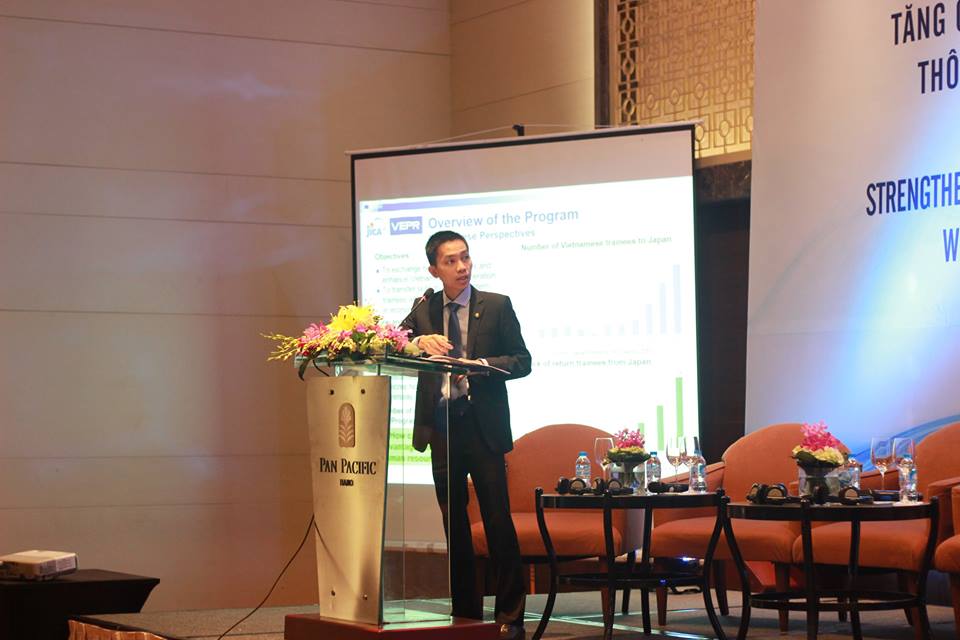 |
Nguyen Duc Thanh, VEPR President, representing the researchers groups, presents the key findings of the survey.
The key recommendations for the further effectiveness of TITP as well as solving skill mismatch are: To improve the transparency of the market by providing more information for stakeholders, epsecially technical trainees; To strengthen the role fo VAMAS in actively supporting its members in terms of administrative system; To improve the vision of sending companies in enhancing their prestige and quality for narrowing the role of intermediaries, helping workers skip the middlemen and cut their costs considerably.
Another technical solutions is to build a web matching system. The system is under construction with the support of JICA and is expected to be in full operation in the next one monthwhich would aid the government in the conception of an employment strategy for those returning home.
It will create opportunities for sending companies to trace and support trainees during the time in Japan and after the return. Especially, it will act as a bridge between returing trainees and enterprises with recruitment demand in Vietnam, and held reduce the mismatching issues. This would help Vietnamese trainees returning home avoid unemployment, as they have already acquired the requisite know-how in Japan. With access to this database, Japanese enterprises investing in Vietnam also would be able to contact easily and directly the qualified workers.
The conference also provides basic information on the direction of economic development of Vietnam in relation with Japan and expriences on sending and receiving trainees to Japan.
In the sidelines of the workshop, a Vietnam – Japan Job Fair has been held, creating opportunities for workers, former trainees, students to meet directly with employers of 30 Japanese enterprises, including big companies such as Honda Lock Vietnam, JCU Vietnam, Yokowo Vietnam, Byron Holdings Vietnam, Naxis Vietnam, etc./.
Minh Phuong
Recommended
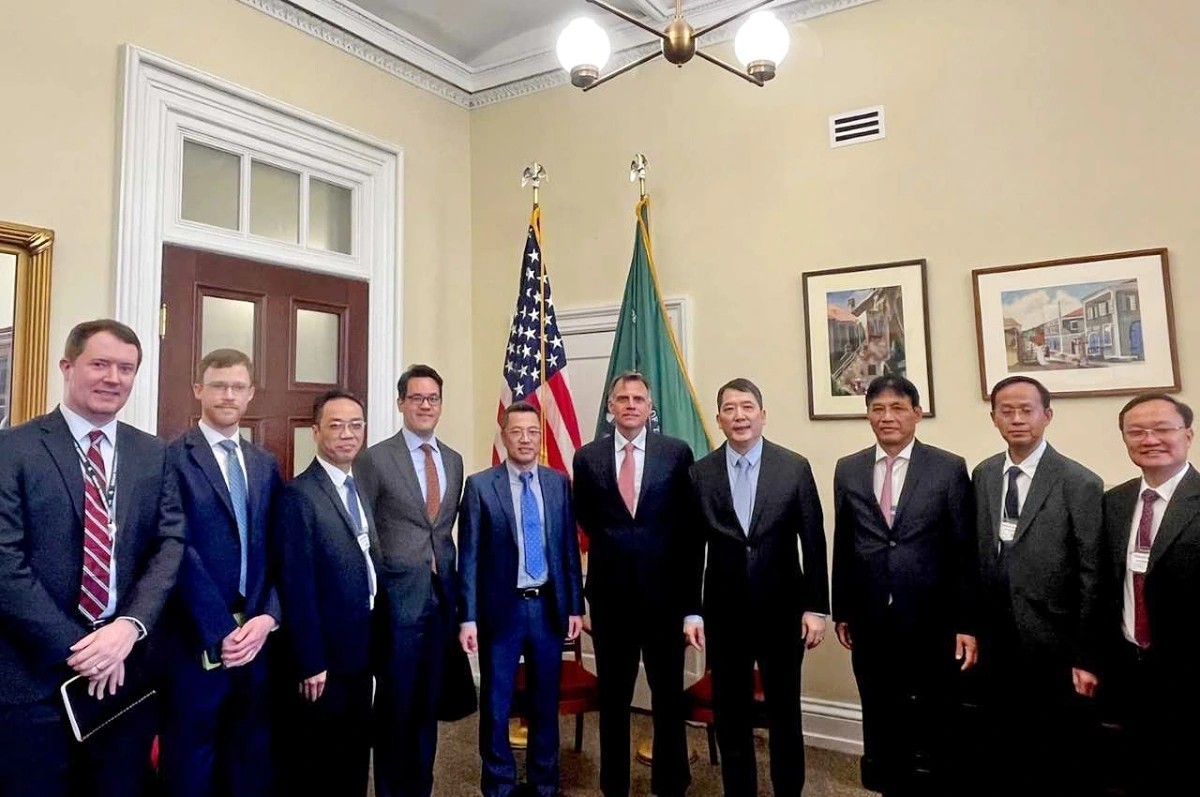 National
National
Vietnam News Today (May 17): Vietnam and United States Boost Financial Cooperation
 National
National
Strengthening Vietnam-Thailand Relations: Toward Greater Substance and Effectiveness
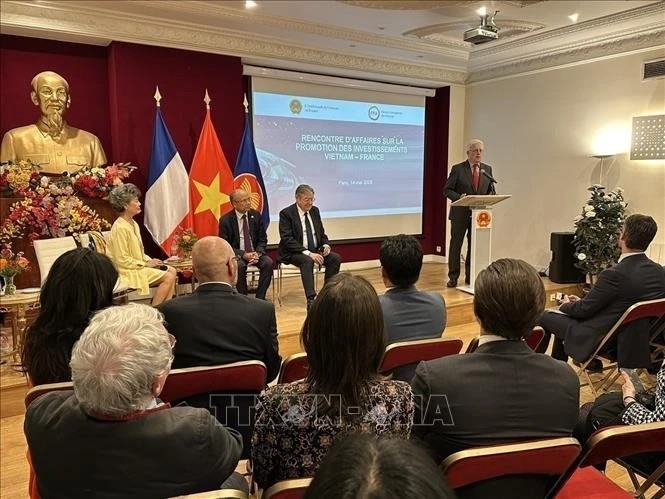 National
National
Vietnam News Today (May 16): Nha Trang Listed Among Top 15 Global Summer Destination in 2025
 National
National
Four Notable Outcomes of General Secretary To Lam’s Four-nation Tour
Popular article
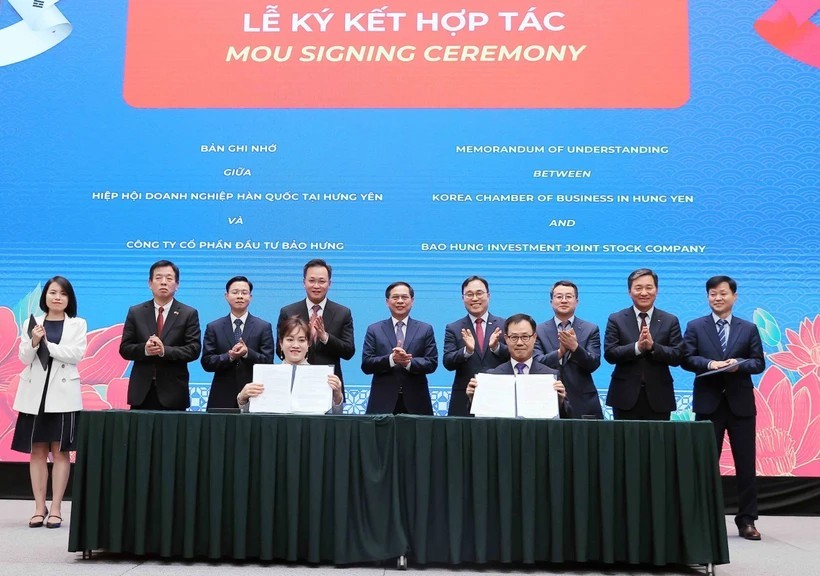 National
National
Vietnam News Today (May 15): Vietnam Looks for Stronger Cooperation with RoK in New Era
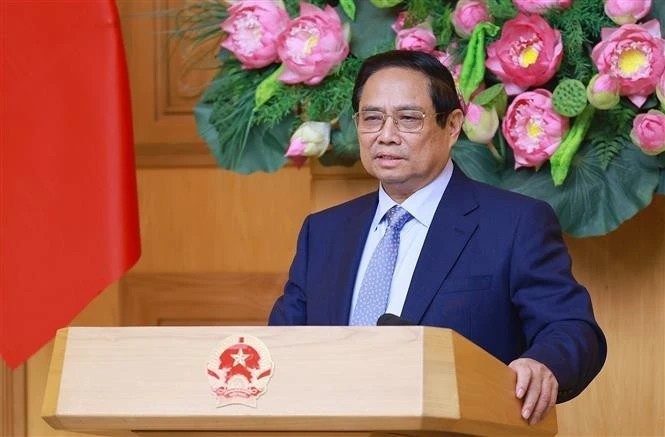 National
National
Vietnam News Today (May 14): US Businesses Affirm Long-Term Commitment to Vietnam
 National
National
Vietnam News Today (May 13): Vietnam Maintains High Human Development Index Despite Global Slowdown
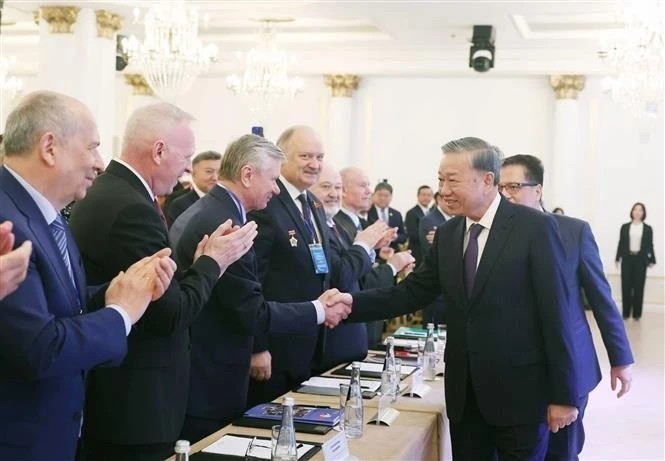 National
National



